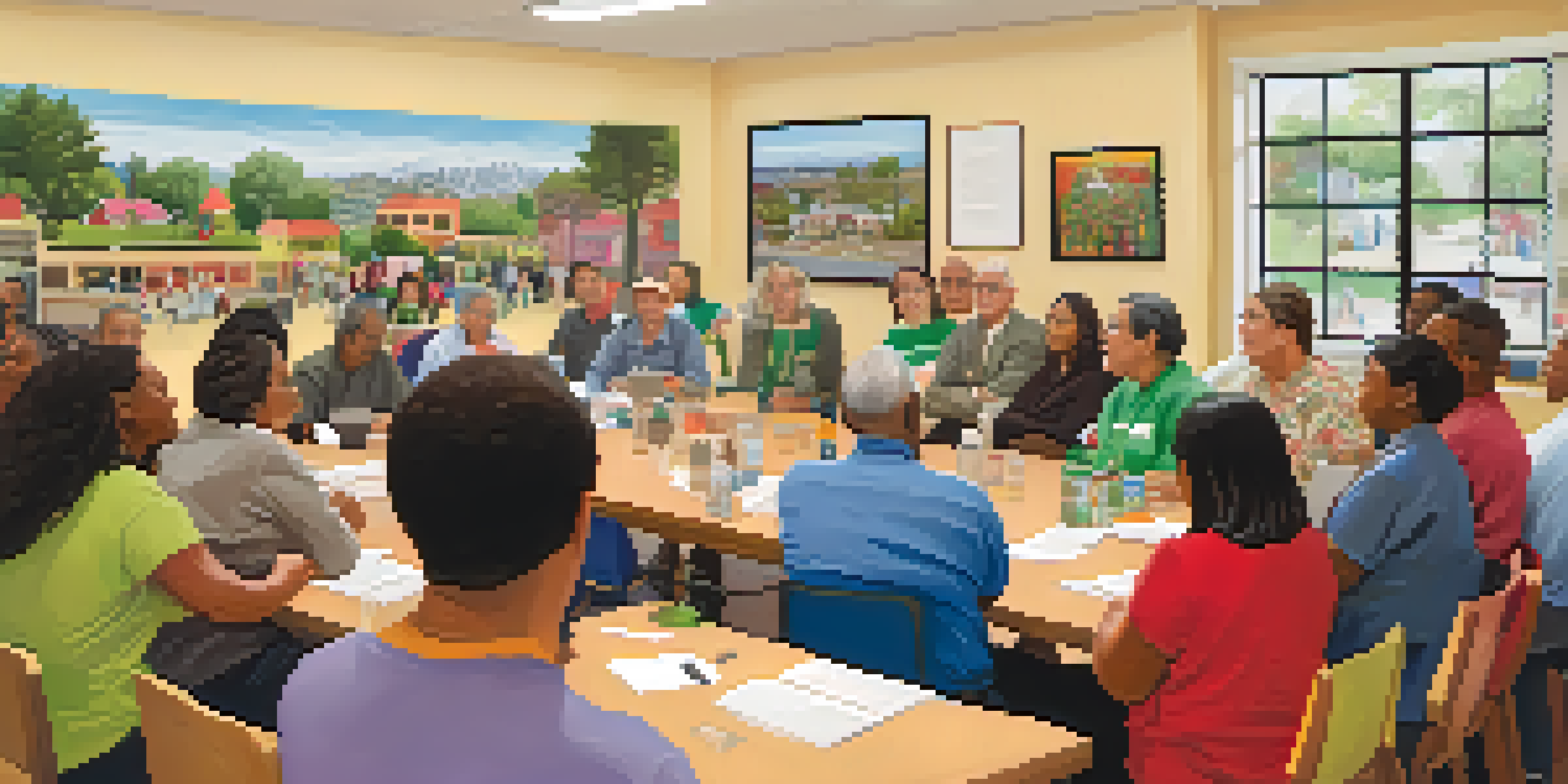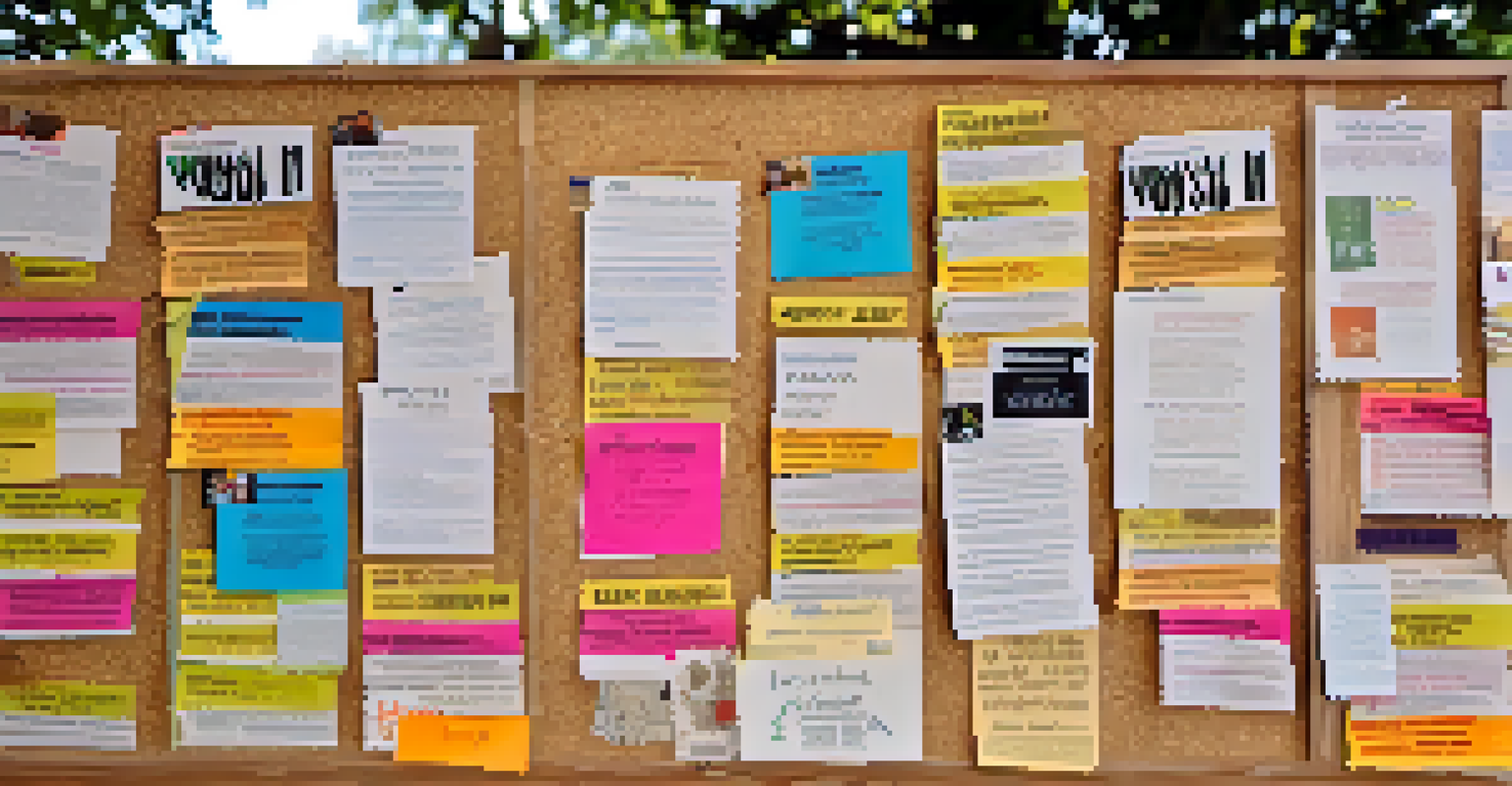Understanding Pasadena's Community Boards and Their Roles

What Are Community Boards in Pasadena?
Community boards in Pasadena serve as vital platforms for local residents to voice their opinions and concerns. These boards consist of volunteers who represent various neighborhoods, ensuring that every community has a say in local governance. They act as a bridge between the residents and city officials, facilitating communication and collaboration. Essentially, community boards are designed to empower citizens and enhance community engagement.
The best way to find yourself is to lose yourself in the service of others.
Each board typically covers different areas of concern, such as zoning, public safety, and community development. By addressing these issues, they help to shape policies that align with the needs of the community. This grassroots approach allows for a more democratic process, where residents can directly influence decisions that affect their daily lives. The boards also often organize events and forums to promote awareness and education within the community.
In Pasadena, there are several community boards, each tailored to specific neighborhoods or districts. This localization helps address unique concerns that may vary from one area to another. Ultimately, these boards play a crucial role in fostering a sense of belonging and community pride among residents.
The Structure of Pasadena's Community Boards
Community boards in Pasadena are typically structured to include a diverse group of members from their respective neighborhoods. This diversity ensures that different perspectives and backgrounds are represented in discussions and decision-making processes. Members are usually appointed or elected, and their terms may vary, allowing for fresh ideas and continuity within the boards.

The leadership within each board often consists of a chairperson and vice-chairperson, who facilitate meetings and coordinate activities. These leaders play a pivotal role in guiding discussions and ensuring that all voices are heard during meetings. Additionally, various committees may be formed within the boards to focus on specific issues, such as environmental concerns or public safety initiatives.
Community Boards Empower Residents
Pasadena's community boards provide a platform for residents to voice their opinions, influencing local governance and fostering engagement.
This structured approach not only organizes the boards effectively but also encourages active participation from all members. It creates an environment where everyone feels valued and encouraged to contribute their thoughts and suggestions. Ultimately, this structure enhances the board's ability to serve the community effectively.
Key Responsibilities of Community Boards
Community boards in Pasadena have several key responsibilities that contribute to local governance and community well-being. One of their primary functions is to review and make recommendations on land use and zoning matters. This includes considering new developments, changes to existing properties, and how these changes might impact the community overall.
Democracy is not a static thing. It is a living force. Every generation must define and defend it anew.
Additionally, community boards often engage in discussions regarding public safety and neighborhood concerns. They may collaborate with local law enforcement to address crime rates or organize community safety events to educate residents. By being proactive in these areas, boards help foster a safer and more secure environment for everyone.
Another important responsibility is to advocate for community needs and priorities. This may involve working with city officials to secure funding for local projects or initiatives that enhance the quality of life. Through these efforts, community boards act as advocates for their neighborhoods, ensuring that their voices are heard in the larger framework of city governance.
How Community Boards Influence Local Policy
Community boards hold significant power in influencing local policy in Pasadena. Their recommendations and feedback on zoning and land use issues can guide city officials in their decision-making processes. Although boards do not have final authority, their insights are often taken seriously, especially when they reflect the collective sentiment of the community.
Moreover, these boards provide a platform for residents to express their concerns and desires directly to decision-makers. This open dialogue helps ensure that policies and initiatives are more representative of the community's needs. By voicing their opinions during board meetings, residents can help shape policies that impact their neighborhoods.
Diverse Structure Enhances Discussions
The diverse membership structure of community boards ensures that various perspectives are represented, promoting effective decision-making.
The collaborative nature of community boards also fosters partnerships with other local organizations and stakeholders. This can lead to innovative solutions and initiatives that address community challenges. Ultimately, their influence contributes to more responsive and effective governance in Pasadena.
Engaging with Pasadena's Community Boards
Getting involved with Pasadena's community boards is easier than you might think! Residents are encouraged to attend board meetings, which are typically open to the public. These meetings provide an excellent opportunity to learn about ongoing issues, ask questions, and share your perspectives on various topics affecting the community.
Additionally, many boards offer volunteer opportunities for those who wish to take a more active role. Whether it's serving on a committee or helping organize community events, there are numerous ways to contribute your time and skills. Volunteering not only enriches your understanding of local governance but also allows you to connect with fellow residents who share your passion for community improvement.
Social media and community newsletters are also great resources for staying informed about board activities and upcoming meetings. By engaging with your local community board, you can help shape the future of Pasadena and ensure that your voice is part of the conversation.
Challenges Facing Community Boards
Despite their vital roles, community boards in Pasadena face several challenges that can hinder their effectiveness. One of the primary challenges is ensuring adequate representation from diverse community members. Sometimes, certain voices may be underrepresented, leading to a skewed understanding of community needs and priorities.
Another challenge is the inconsistency in resident engagement. While some meetings may see strong attendance, others can be sparsely populated, limiting the board's ability to gather comprehensive feedback. This inconsistency can affect the board's decision-making process and their perceived legitimacy within the community.
Challenges Impact Community Engagement
Community boards face challenges like inconsistent resident participation and limited resources, which can hinder their effectiveness in serving the community.
Additionally, community boards often operate with limited resources and funding, which can restrict their ability to implement projects or initiatives. Overcoming these challenges requires ongoing efforts to encourage participation, increase awareness, and secure necessary resources, ensuring that these boards can continue to serve their communities effectively.
The Future of Pasadena's Community Boards
Looking ahead, the future of Pasadena's community boards holds great potential for enhancing community engagement and participation. As technology continues to evolve, there are new opportunities for boards to connect with residents through online platforms and social media. This can help bridge gaps in communication and encourage more residents to get involved.
Additionally, increased collaboration with local organizations and businesses can strengthen the boards' influence and reach. By forming partnerships, community boards can tackle larger projects that benefit the entire city, fostering a stronger sense of community spirit and collaboration.

Ultimately, the continued success of Pasadena's community boards will depend on their ability to adapt to changing dynamics and engage residents effectively. By embracing innovation and inclusivity, they can ensure that they remain a vital part of Pasadena’s civic life for years to come.